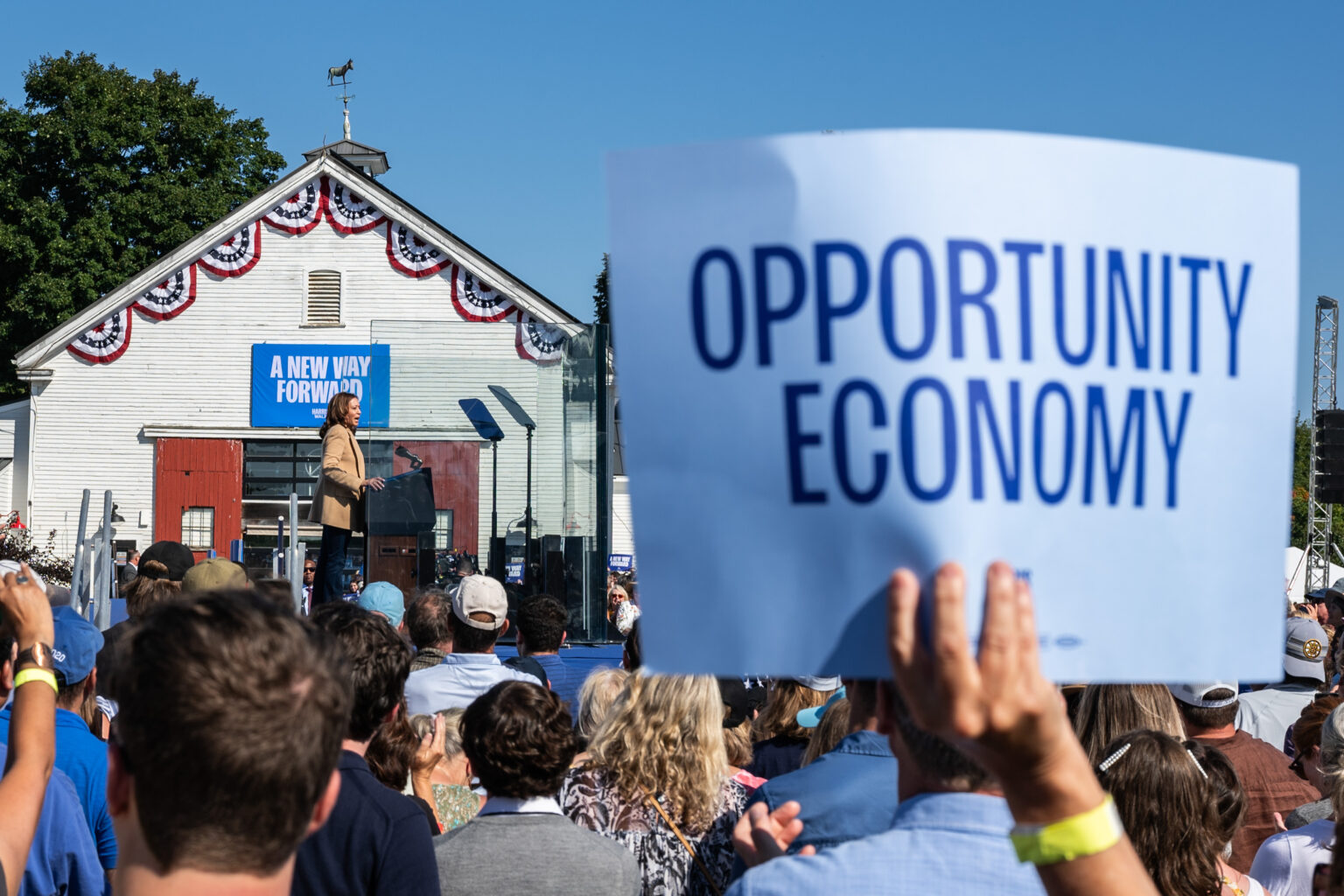On Wednesday, Vice President Kamala Harris brought her magnetic campaign energy to a Chamber of Commerce breakfast in Concord, New Hampshire, rallying the small business owners in attendance around a tax deduction plan aimed squarely at boosting Main Street innovation.
Working off notes scribbled on a crumpled sheet of paper pulled from her purse, Harris touted a proposal to let entrepreneurs deduct up to $50,000 in start-up costs as they get fledgling ventures off the ground. Expenses like office remodeling, equipment purchases, licensing fees, and more would qualify, saving small operators tens of thousands compared to today’s $5,000 deduction limit.
“The American dream starts with a spark of imagination and a willingness to take risks,” Harris proclaimed with enthusiasm. “As President, I want to fan that spark into a firestorm of small business success!”
She lauded the independent and inventive spirit that drives local store owners, tech pioneers and entrepreneurs to pour endless energy into building something from nothing. America owes its global leadership to the same qualities that motivate entrepreneurs, Harris argued.
“The spirit of innovation lives on Main Streets across America, where brave women and men work ridiculous hours in pursuit of their dreams,” she continued, citing late nights finalizing floor plans, early mornings sourcing suppliers and more. “I want to make it easier for those dreamers to get the capital they need to actually realize their ambitions.”
The Vice President capped her remarks by taking selfies with starstruck business owners and sampling donuts from a new bakery that opened down the street thanks to a small business loan.
Kamala’s Small Business Tax Proposal
The $50,000 deduction, a tenfold increase over the current $5,000 level, would ease the substantial cost burdens facing new business owners, Harris advisors say.
Government statistics show the average small company spends around $30,000 just to open its doors, from registering a business name to buying equipment to hiring first employees. That’s on top of longer-term investments in inventory, marketing, training and more.
“Vice President Harris clearly understands that red tape and high taxes stifle innovation,” said Madison Caldwell, a self-employed graphic designer in the audience whose two-year-old branding agency cost $48,000 to launch. “This deduction would let me re-invest in growing my business instead of sending huge tax checks to Uncle Sam.”
The policy proposal is also an effort by Harris to blunt Republican attacks that liberal economic policies lead to inflation and fiscal irresponsibility. It follows last month’s speech, in which she positioned herself as a defender of free markets while also calling for measures preventing large corporations from exploiting consumers.
“I want to cut taxes for working families and let small businesses compete on a level playing field with the big guys for a change,” Harris said as she concluded her remarks. “We don’t inherit this economy; we borrow it from our children, and we need to leave them more opportunity, not more debt.”
Small Business: A Key Metric
The deduction plan forms a key plank of Harris’ broader strategy to catalyze new business and job creation. She announced an ambitious goal of spurring 25 million new small business applications nationwide during her first term if elected. That would significantly outpace the estimated 19 million applications submitted since President Joe Biden took office, suggesting Harris plans to be aggressive with pro-growth policies.
While Harris’ campaign is optimistic the proposals will resonate with voters, passage in Congress remains an open question. Some fiscally conservative Democrats and Republicans will likely balk at the price tag for the deductions and other subsidies at a time of rising inflation and debt.
Harris could counter by arguing that boosting Main Street commerce expands the overall economic pie.One thing is clear – with small businesses creating nearly 50% of private sector jobs, the political appeal of promoting entrepreneurs is obvious.
As the race shifts into high gear post-Labor Day, the battle of economic visions between Harris and Republican opponent Donald Trump will likely be front and center.
Related: Wharton Study Finds Trump’s Policies Will Add $4.1 Trillion to Debt; Kamala’s $1.2 Trillion


